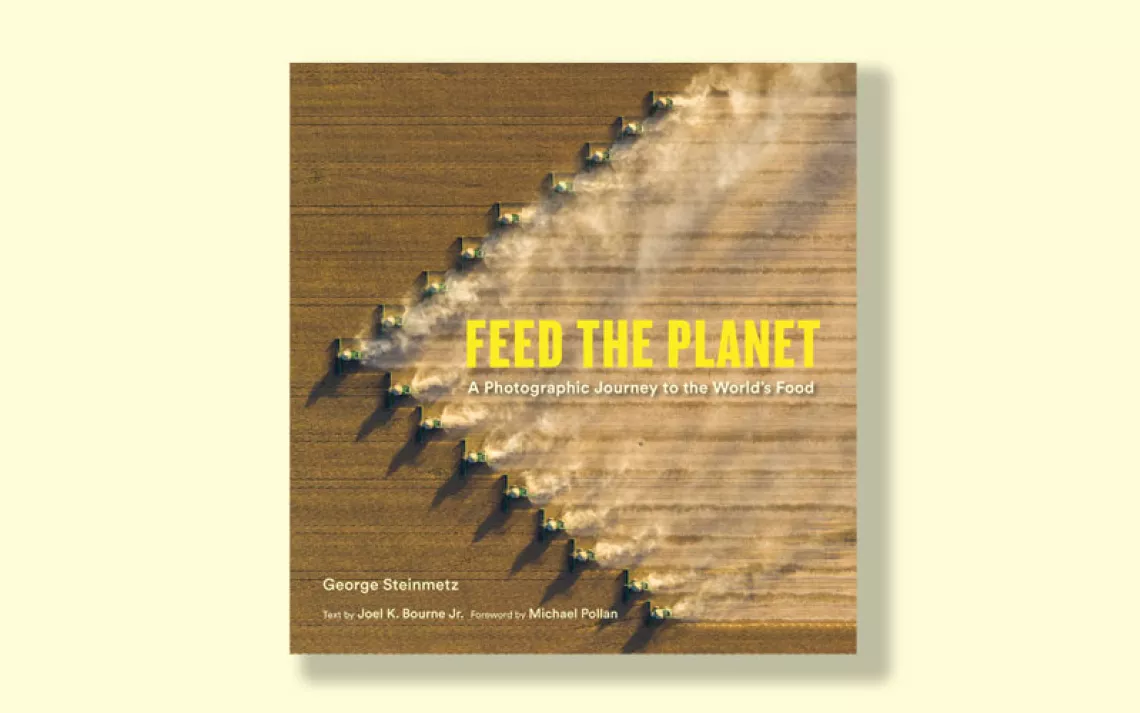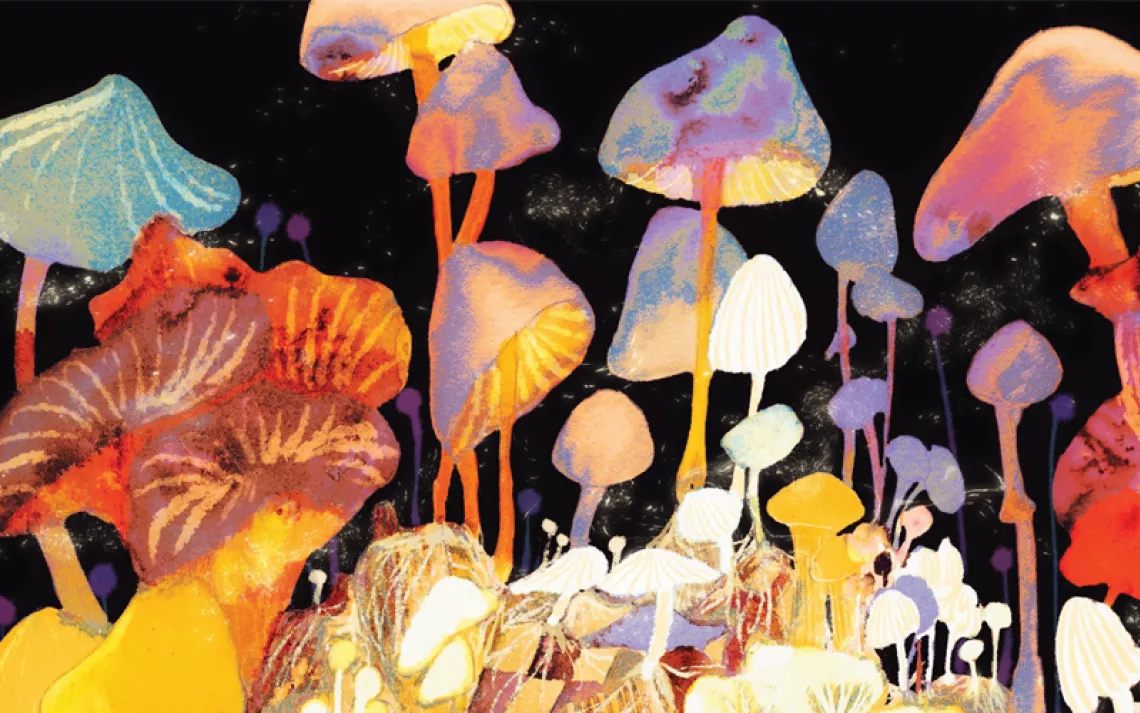Climate Visionary Ursula K. Le Guin
Consider these six works by the late author your required reading for 2018

Ursula K. Le Guin | Photo by Benjamin Reed/AP
In 2017’s The Great Derangement, acclaimed Indian writer Amitav Ghosh took literary novelists to task for failing to explore in their work the implications of climate change and extreme weather. Point well taken, except Ghosh failed to acknowledge that acclaimed novelist, poet, and essayist Ursula K. Le Guin had been grappling with environmental degradation and climate change in her fiction for decades.
When news broke last week that Le Guin had died on January 22 at age 88, tributes poured in from colleagues and admirers, from Margaret Atwood to John Scalzi, David Mitchell to Karen Joy Fowler. Many have hailed the author of A Wizard of Earthsea, The Lathe of Heaven, The Left Hand of Darkness, and at least 20 other novels and more than 100 short stories for her groundbreaking approach to the issues of race, gender, and sexuality. Numerous authors have testified to how Le Guin inspired them to pursue their own writing.
As for her seemingly prescient depictions of climate change, Le Guin said in a 2014 interview with the Boston Globe, “It haunts me when people tell me how incredibly farsighted I was to be talking about climate change and climate destabilization and the degradation of the natural world back in the ’60s. I wasn’t! I was just listening to the scientists.”
Le Guin's appreciation for the natural world, her interest in environmental issues, and her questioning of capitalist exploitation are evident throughout her work. One can find in most of Le Guin’s fiction and nonfiction hard-won wisdom about living a balanced life. Because even the most dedicated and seasoned environmentalist stands to be further enlightened, we have selected six samples of Le Guin’s writing—a story, a novella, two novels, recent essays, and a speech—that showcase, in various ways, Le Guin's commitment to science, nature, art, and economic justice.
Published in 1975, "The New Atlantis" offers an early, short-story-length warning about climate change. In a near future of climatic and geological upheaval, a man on a bus announces to the narrator, Belle, that a new continent is rising from the depths of the sea. “Manhattan Island is now under 11 feet of water at low tide, and there are oyster beds in Ghirardelli Square,” she confirms. The oceans are rising due to polar melt, and Antarctica may soon be habitable, because of greenhouse gases. Meanwhile, a polluted Portland, Oregon, has no electric power in the wake of earthquakes.
The story not only presents a vision of environmental decline and authoritarian dystopia, but it also offers a glimpse of utopia. Belle, Simon, and their compatriots still have enough spirit to imagine a better day, when humankind might exist in harmony with what rises up out of the transformed ocean.
The Word for World Is Forest
Le Guin wrote this short novel in 1968 for publication in Harlan Ellison's groundbreaking Again, Dangerous Visions anthology. It is a searing allegory for U.S. involvement in Southeast Asia and the continuing despoliation of the natural world. As the novel opens, Terrans have arrived on the planet Athshe, renamed it “New Tahiti,” and colonized it. Their own planet's environment destroyed long ago, the “yumens” proceed to strip Athshe of its natural resources and enslave the native Athsheans. Initially unfamiliar with war and murder, the Athsheans rise up against their oppressors, but their rebellion comes at a terrible cost to the entire planet.
In an interview with writer Alexander Chee, Le Guin said, “Although my preference and tendency is always not to write allegorically and not to use material directly, the year I wrote that book I was in London, unable to protest my country’s increasing involvement [in Vietnam] by direct nonviolent action as I had been doing here. My frustrated anger and shame went pretty directly into the book."
A winner of the prestigious Hugo and Nebula awards and one of Le Guin's best-regarded books, The Dispossessed is a complex novel that in part explores the destructive impact of culture founded on the exploitation of people and resources. The book follows Shevek, a physicist, as he travels between two planets orbiting Tau Ceti. Anarres is a home to an anarchist society contending with a massive drought. On Urras, hierarchical capitalism and authoritarian government are the order of the day.
With The Dispossessed, Le Guin raises questions about what kinds of societies survive in times of adversity and prosperity and at what costs. Anarres is presented as possibly providing a better way of life, but as the subtitle of some editions suggests, it is “An Ambiguous Utopia.” What is abundantly clear, however, is that Earth's brand of capitalism proved disastrous. Says one character, “My world, my Earth is a ruin. A planet spoiled by the human species. We multiplied and fought and gobbled until there was nothing left, and then we died. We controlled neither appetite nor violence; we did not adapt. We destroyed ourselves. But we destroyed the world first.”
Le Guin disconcerted some readers and critics with 1985's dense, nonlinear, and earthbound Always Coming Home. Science fiction website io9.com cofounder Charlie Jane Anders calls the novel Le Guin's “great unsung masterpiece.”
Le Guin described it thus: “The people in this book might be going to have lived a long, long time from now in Northern California.” That's an odd, but very deliberate sentence, one that simultaneously connects the past and the future. She's speaking of the Kesh, the People of the Valley, who must navigate an inland sea created by climate change and deal with the chemical wastes left behind by the technology-driven former inhabitants. A slim part of the book is narrative, recounting the story of Stone Telling, a young woman with a Kesh mother and a father from a patriarchal military society intent upon conquest.
The bulk of the book consists of a compendium of Keshian knowledge: drawings, poetry, songs, and recipes. Although not at all conventionally plotted, Always Coming Home offers a unique opportunity to delve into the traces of a more humanistic culture, where even the tiniest, seemingly mundane detail can resonate with unexpected meaning.
Essays from No Time to Spare: Thinking About What Matters
Le Guin's most recent book is a collection of selected blog posts. One might not think such ephemera worth preserving between hardcovers, but Le Guin used her time online wisely, producing mini-essays with genuine impact (as well as reports of the cute antics of her cat, Pard).
Of particular note from this 2017 essay collection are “The Lynx,” in which Le Guin contemplates a declawed and defanged wild feline's lonely existence at an Oregon museum and compares his seclusion with that endured by residents of a nearby gated retirement community; “Clinging Desperately to a Metaphor,” which questions capitalism's perceived need for perpetual growth; and “Lying It All Away,” a pre-Trump indictment of Corporate America's refusal to face unpleasant truths about ecological devastation.
National Book Foundation Acceptance Speech: “Words Are My Matter: Writing About Life and Books 2000–2016”
In 2014, Le Guin accepted the National Book Foundation Medal for Distinguished Contribution to American Letters. After thanking her hosts, she delivered a fiery, impassioned criticism of the publishing world and of capitalism itself. “Hard times are coming,” she said, “when we'll be wanting the voices of writers who can see alternatives to how we live now and can see through our fear-stricken society and its obsessive technologies to other ways of being, and even imagine some real grounds for hope.”
Le Guin concluded, “We who live by writing and publishing want and should demand our fair share of the proceeds, but the name of our beautiful reward isn’t profit. Its name is freedom.”
 The Magazine of The Sierra Club
The Magazine of The Sierra Club



